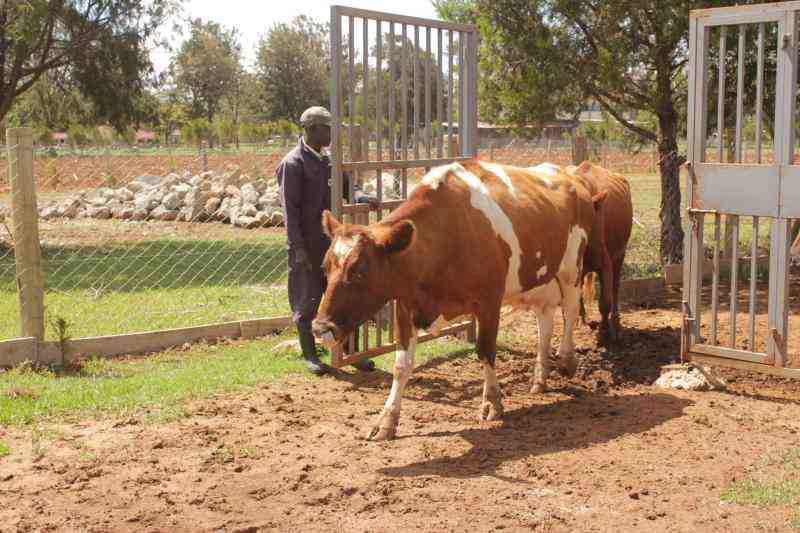×
The Standard e-Paper
Fearless, Trusted News

Healthy fine-looking Aryshire heifers grazing quietly welcome you when you visit Eldoret National Polytechnic's expansive dairy unit.
State-of-the-art housing, milking and breeding technology would impress any dairy farmer.